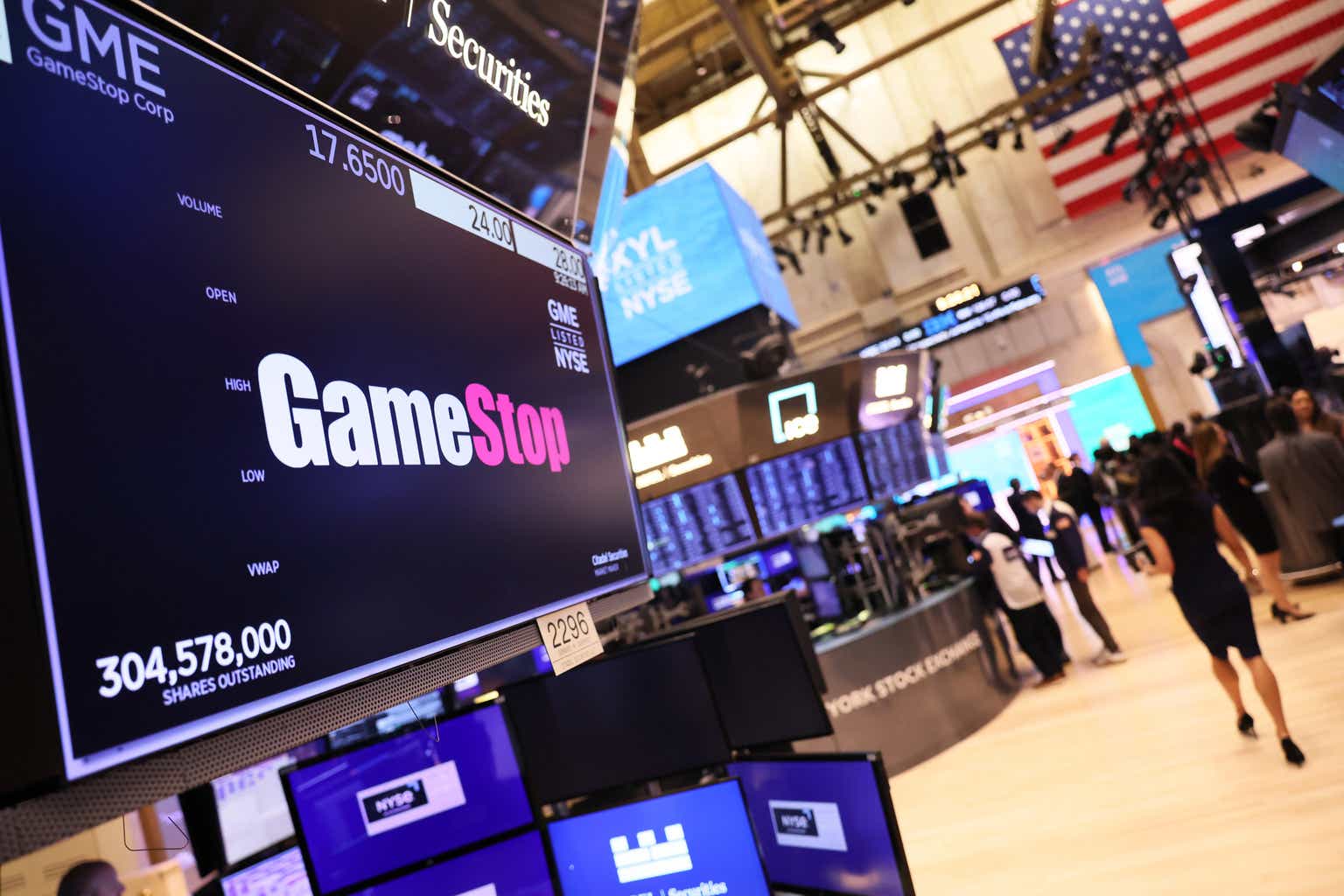Michael M. Santiago
Listen below or on the go on Apple Podcasts and Spotify
Shares rise as meme crowd favorite Cohen takes GameStop (GME) top spot. (0:15) ChatGPT goes real time. (2:55) S&P ETF is the most oversold it’s been in a year. (3:25)
This is an abridged transcript of the podcast.
Our top story so far
GameStop (GME) stock is jumping as Ryan Cohen takes the helm.
The company disclosed early Thursday that its board elected Cohen as president and CEO, effective immediately.
Cohen gives up the title of executive chairman, a position that he has held since Matt Furlong left as CEO in June. He will not receive compensation for the role.
Cohen, who founded Chewy (CHWY) in 2011, has long been seen as the savior of GME by die-hard shareholders who launched the stock into the meme stratosphere, breaking a short fund and disrupting Robinhood’s (HOOD) platform along the way.
He was already GameStop’s chairman and is GME’s biggest shareholder, with a stake of about 12% of the shares outstanding through RC Ventures.
Cohen will be expected to lead a turnaround for a company that has seen very choppy stock action this year in the continued push-and-pull between fundamentals and GameStop devotees.
Shares are down slightly year to date, but off more than 30% in the past year.
In today’s trading
Stocks are slightly lower following a sharp drop in August pending home sales. Sales dropped -7.1% month to month, compared with expectations for a drop of -0.5%.
“Some would-be home buyers are taking a pause and readjusting their expectations about the location and type of home to better fit their budgets,” said Lawrence Yun, chief economist at the National Association of Realtors.
The S&P (SP50), Dow (Dow), and Nasdaq (COMP.IND) are down -0.2%.
Longer yields continue to march higher, with the 10-year Treasury yield (US10Y) topping 4.65%.
The final measure of Q2 GDP arrived, making few waves. Annual growth stayed at a rate of +2.1%, while the core PCE price index remained at +3.7%.
But the labor market continues to show signs of strength. Weekly jobless claims remained low, ticking up only slightly to 204K.
Pantheon Macro says claims remain well below their pre-summer trend, and they see no sign of an imminent sustained increase.
Among active stocks
Philip Morris International (PM) set ambitious growth targets that include net revenue compound annual growth of 6% to 8% on an organic basis. PMI aims to have more than two-thirds of its total net revenues come from smoke-free products in 2030. That’s a significant increase from the previous target of 50% by 2025.
Micron Technology (MU) was under pressure after it offered up a mixed forecast for the coming quarter. Wall Street analysts debated whether the company was being conservative or whether the downturn in memory has more room to run.
Workday (WDAY) fell as it guided annual subscription revenue growth of 17% to 19% over the next three years, which fell short of expectations. That was what investors zoned in on, even as it accompanied the announcement of new generative AI solutions.
Staying in the AI arena
OpenAI said ChatGPT can now browse the internet to provide current and authoritative information with direct links to sources, adding that it was no longer limited to data before September 2021.
“Browsing is available to Plus and Enterprise users today, and we’ll expand to all users soon,” OpenAI tweeted.
Earlier this week, OpenAI, which is backed by Microsoft (MSFT), announced an update through which the generative AI chatbot is now able to “see, hear, and speak” spoken words.
And in the Wall Street Research corner
The benchmark S&P ETF (SPY) is now the most oversold it’s been in a year. The relative strength index sits just above 30.
It hasn’t been below that level since a brief dip in late September 2022. That preceded a solid grind higher for stocks through to the start of August, when the recent correction kicked in.
For the index itself, the S&P (SP500) 200-day moving average is just below 4,200, which could be the next test.
But Seagate Research Partners says a “definitive technical backstop” won’t happen until the confluence of support at 4,200 is challenged and the Nasdaq 100 (NDX:IND) (QQQ) breadth “cracks lower” toward that of the S&P and the Russell 2000 (RTY) (IWM).
Meanwhile, J.P. Morgan strategist Marko Kolanovic says that stocks are in for a volatile time, with the current rate environment not repeating but “rhyming” with 2008.
“While the S&P 500 is still up for the year, the gains are entirely from a handful of mega-cap tech stocks, inspired by the AI narrative and defying the sharp rise in interest rates,” Kolanovic wrote. “Perhaps a better gauge of macro-fundamentals is the S&P 500 equal weighted (RSP) or small capitalization indices (IWM) (VTWO) that are flat for the year and are underperforming cash.”
“The core risk for markets and the economy is tied to the interest rate shock of the past 18 months,” he said. Consumer loan rates “have increased by ~4 percentage points, which is roughly a 60–70% increase for these payments.”
“Compared to the pre-GFC average (since 2002), consumer rates increased by about 1 percentage point, roughly a ~15% increase. So the current change in interest rates is about five times larger than the 2002–2008 increase.”











